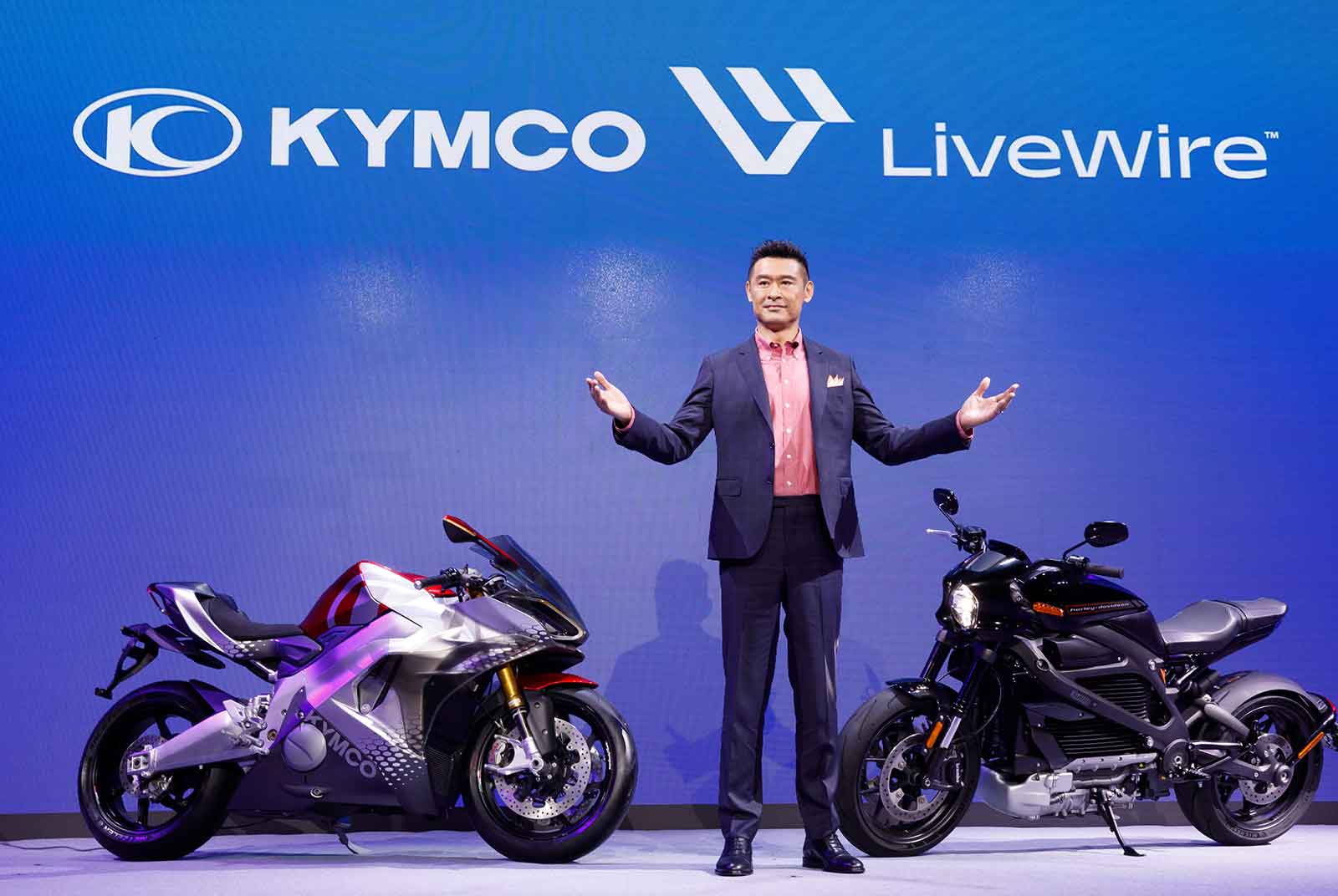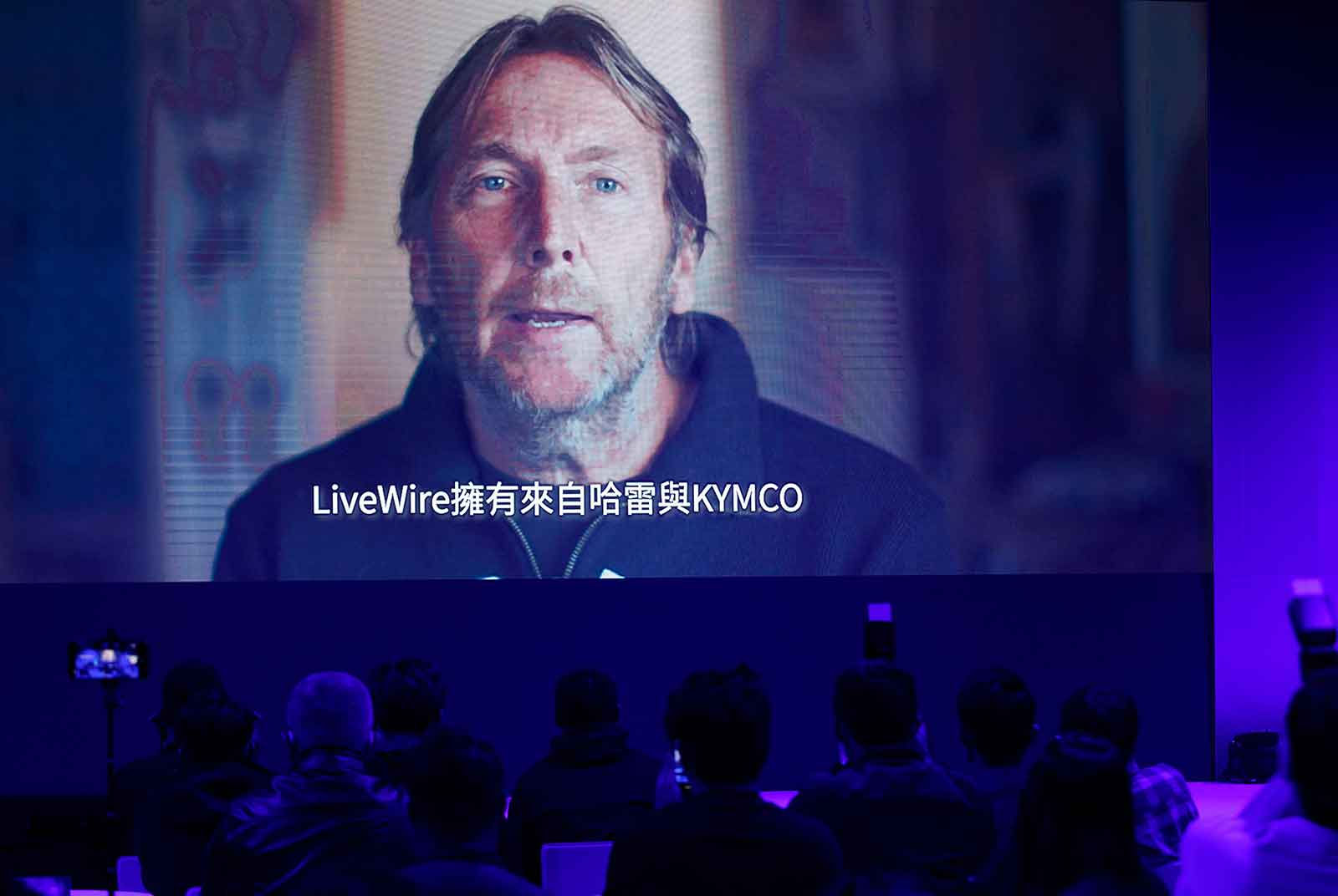How did Kymco become a strategic ally of Harley-Davidson?

Source:Chien-Ying Chiu
Taiwan’s time-honored scooter brand Kymco has recently bought a US$100 million stake in Harley-Davidson’s electric motorcycle brand LiveWire, which just went public on the New York Stock Exchange through a SPAC.
Views
How did Kymco become a strategic ally of Harley-Davidson?
By Allison Hsuweb only
On December 13, 2021, LiveWire listed on the New York Stock Exchange through a special purpose acquisition company, a shell company that uses money raised through stock to acquire a private company and bring it to market. Two days after the listing, Kymco scooter maker Kwang Yang Motor Co. Ltd. provided insight into the story behind the LiveWire deal in a press conference.
Kwang Yang Motor Chairman Allan Ko announced that Kymco had become the only strategic partner of LiveWire by acquiring a US$100 million stake.
With the alliance, Kymco fills the only gap in its product lineup – heavy motorcycles.
“This is the first case of an electric motorcycle company going public. Lawyer and consulting fees are expected to reach US$55 million, which makes it the currently most-watched case on Wall Street,” said Gary Ting, general manager of venture capital fund Kymco Capital.
Kymco is the major shareholder in Kymco Capital. During the past few years, Kymco Capital and Kymco have worked in tandem establishing a new mode of business cooperation, with Kymco Capital providing money to buy into promising startups and the scooter maker providing manufacturing skills. The alliance with Harley-Davidson is the second such deal following a successful linkup with Southeast Asian unicorn Grab.
 (Source: Chien-Ying Chiu)
(Source: Chien-Ying Chiu)
After spinning off its electric motorcycle arm LiveWire, Harley-Davidson invited Kymco to acquire a stake in the new company which was going to list through a SPAC.
When negotiations began, Harley-Davidson was on the high horse, claiming that Kymco was just one of many prospective investors and quoting a high price for the stock purchase.
At that point, Ting demanded that Kymco in its capacity of future investor be shown the financial forecast and financial structure. He requested explanations about the logic behind the evaluations and launched an investigation into the company’s net worth.
Due to Kymco’s demands, the negotiations stalled for two months. Much to everyone’s surprise, rumors popped up around that time that the Securities and Exchange Commission (SEC) in the United States was planning tighter control of SPACs. For Ting, this was an opportunity to gain an upper hand. “I told Kwang Yang: ‘Now Harley-Davidson needs us’.”
The SEC expects companies going public via a SPAC to provide evidence that they have a future. This bolstered Kymco’s position. They returned to the negotiation table as an equal, negotiating a substantive reduction of the asking price to acquire their stake at a quite reasonable share price.
Ting believes such alliances constitute a big step forward for Taiwanese manufacturers. “Since Taiwanese manufacturers have been acting as contract manufacturers for a long time, they find it hard to adjust their mindset. They are already happy if people respect them and let them put the company name [on the products].”
According to Ko, Harley-Davidson is very strict when it comes to the requirements that cooperation partners need to fulfill.
“This goes as far into detail as supplier management, employee wage level, prohibition of child labor…all these need to be observed, which Kwang Yang must prove with hard documentary evidence.”
By acquiring a stake in LiveWire, Kymco gains three advantages in one deal - technology, markets, and international visibility.
A Taiwanese brand story for Harley-Davidson
Harley-Davidson stands for the quintessentially American biker culture. Yet while the image of the century-old brand remains strong, its core customer group is aging rapidly. The global trend toward electric motorbikes further undermines the market for the fuel-thirsty Harleys. LiveWire therefore plays an important role in the transformation of Harley-Davidson to a greener product lineup.
But presently LiveWire does not even sell 2,000 machines per year. Due to high production costs in the United States, the heavy motorbikes are too expensive.
This is where Kymco comes in as an experienced, cost-effective manufacturer.
Ting reveals that Kymco bought three LiveWire motorbikes in the United States last year and disassembled them in Taiwan.
They found that LiveWire technology is strong but also understood that high production costs are Harley-Davidson’s weakness. “After cooperating with Kymco, cost can be reduced to one seventh,” claims Ting. This would leave much room for lowering prices for future LiveWire models and pave the way for entering new markets.
Aside from cost, Kymco’s strength is 50cc city scooters, a segment where the company has a rich manufacturing experience. In contrast, Harley-Davidson possesses considerable intellectual property in the field of R&D of battery, motor and electric control system products, bike frames, and the Internet of Vehicles. This is exactly where Kymco has technology gaps in the electric vehicle segment.
As Ko sees it, “When the two sides will share a [technology] platform in the future, this will be a big plus for Kymco.”
Ko expects the first jointly produced motorbike to hit the market in two years.
Then, Harley-Davidson will market the heavy electric motorbikes under the LiveWire brand in its traditional core markets in the West, whereas Kymco will focus on the Asian, South American, and Eastern European markets.
The important thing for Ting is that “The Americans are good at branding. Thanks to our collaboration with Harley, Kymco can gain global value.”
What most people don’t know is that Kymco has been cooperating with many renowned heavy motorcycle brands, including BMW from Germany, Kawasaki from Japan, and Arctic Cat from the U.S.
Amid the fight against global warming, pressure is mounting on manufacturers of gas-guzzling heavy motorcycles to transition to less polluting products.
Kwang Yang Motor CEO Ko Chun-ping disclosed that “many have knocked on our doors seeking cooperation.” But he insisted that, regardless of which model is chosen, cooperation must be a “mutual benefit” proposition.
“This investment of US$100 million constitutes an opportunity for long-term collaboration with Harley-Davidson,” noted the CEO.
What is crucial for the success of e-motorbikes?
Ray Wu, CEO of Porsche dealer Suntek Group, thinks that the tie-up between Harley-Davidson and Kymco shows that the market for electric motorbikes is on the rise. “Even the traditional heavy motorbike brands are deciding to cross over into the electric motorbike segment. They take advantage of public listings to demonstrate their resolve,” he points out. Noting that Taiwanese electric scooter brand Gogoro will go public in the United States in the first quarter of 2022 via a SPAC, Wu expects electric scooters to become a hot topic.
Kymco has invested significant amounts in e-scooter-related business over the past two years.
In early 2021, it invested US$30 million via Kymco Capital in Southeast Asian mobile technology company Grab, which helped it enter the Indonesian market for shooter sharing.
And in Taiwan, Kymco had already begun to collaborate with scooter rental operators WeMo and iRent five years ago. In March of 2021, it joined hands with the Kaohsiung Rapid Transit Corporation, which operates the local subway, providing Ionex ATR electric scooters for rent at major MRT stations and making forays into shared transport services. In June, Kymco entered into an alliance with 55688 Taiwan Taxi, and invested NT$180 million in Global Express to export the business model of Kymco’s Ionex system around the world.
Today, Allan Ko is no longer focusing all efforts on becoming the number one. After remaining the unchallenged top scooter seller in Taiwan for a quarter century, Kymco has accumulated good staying power. “Selling a lot is not our main goal of corporate development,” he declares.
He is aware of the long road ahead. “When you aim for sustainable business, brand business, you need to be prepared that you might even have to start from zero.”
Have you read?
♦ KYMCO Capital: US-China Rivalry a Golden Opportunity for Taiwan
♦ 1983: Who defined the Taiwan lifestyle?
♦ Gogoro CEO over SPAC deal: “We are ready to go big”
Translated by Susanne Ganz
Edited by TC Lin
Uploaded by Penny Chiang






